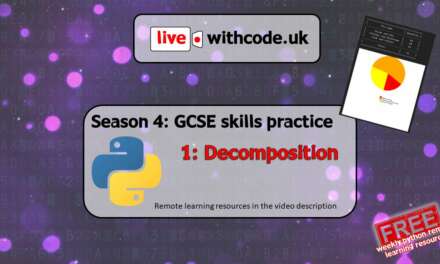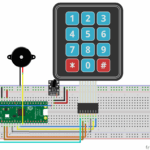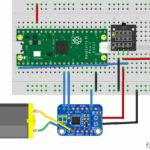
This article has been written by Kayleigh Alexandra from microstartups.org
microstartups.org: Giving through growth hacking
With the trend towards ever-greater automation, it’s becoming abundantly clear that the development of rich digital skills is increasingly important for new generations. That’s a good enough reason in itself to encourage young people to get involved with programming, but as they get stuck into software development they’ll no doubt encounter a treasure trove of life lessons with lasting consequences on their character as well as their future career.
In particular, there are 5 invaluable life lessons that immersion into the coding world can rapidly drill into a young person’s mind, ultimately helping them live happier and more successful lives — so let’s take a look at them, and consider why they’re so important.
Being self-driven is tough but vital
For anyone used to being given specific direction when learning a new skill (read this textbook front to back, answer these questions, and you’ll get a certificate), starting out with programming can be quite the wake-up call — it all owes to the essential spirit of experimentation and DIY.
Want to create a specific type of application? You’ll surely be able to find forums full of people who’ll give you pointers, but they won’t hold your hand and give you the answers. They’ll help you to find the answers for yourself, because self-management is a vital skill to develop.
As I type this, there are programmers across the world diligently updating their skills and poring over documentation, and they’re far too busy to lead you. The sooner you learn that you’re the only person who can solve your problems, the sooner you’ll realise how empowering and satisfying that is — no matter what you’re trying to achieve.
You need to use all available resources
Creativity and originality are rightly highly revered. Stealing other people’s ideas through outright plagiarism is an awful thing to do, and our egos drive us to achieve using our ideas as opposed to anyone else’s. But there’s a slight problem with that: originality isn’t really that original. It stems from our brains collating inspiration and making some minor tweaks. No inspiration, no breakthrough.
Programming imparts this wisdom very quickly through libraries. It’s a time-intensive industry, and there’s zero practical benefit in writing a chunk of code from scratch if you can find and repurpose established code for free — you may need to provide attribution, but that’s completely normal. It’s a very collaborative field.
An important lesson to learn is that the desire to be original and solitary can drive people to waste time on things that don’t ultimately matter. This is something that the ecommerce industry understands well. Merchants speed up anything non-essential (using freelancers for copy, buying websites instead of building them, conducting widespread competitor research, etc.), because part of being self-driven and empowered is knowing when there’s no sense in starting with a blank slate.
Small actions can have big consequences
One keystroke goes awry during a late-night coding session, it doesn’t get caught in review, and six weeks later a giant network goes down, staying down for days before someone identifies the root cause. Anyone who has ever thought “Well, it’s just a minor mistake, there’s no way it will ultimately matter” would get quite a shock from trying programming.
But there’s another interpretation of this that’s significantly more positive. Programming is something to be learned incrementally, with knowledge gradually spanning languages, topics and platforms, and that can be intimidating to someone new to it — but the concept of tiny steps gathering into a lengthy journey is key to long-term contentment.
You can’t learn Python in a day, but you can learn something about it, and build on it in the next lesson. Want to get healthier? Eat better today, and tomorrow, and the day after, going one day at a time, and soon enough you’ll be feeling better. Any goal you want to achieve should be targeted in the same way.
It isn’t hard work when you’re passionate
If you’ve ever heard some version of this statement said, you’ll know what I’m getting at. Programming is not something that immediately appeals to everyone. You can certainly understand why some might look at it and conclude that it’s an arduous, frustrating and repetitive war of attrition.
Here’s the thing: it’s a matter of perspective, and only when you find yourself researching a specific function in the early hours of the morning do you fully understand that anything — not matter how reductively you choose to define it — can be enjoyable and rewarding if you’re passionate about it.
Never forget this, or that tastes naturally change and develop over time. That way, you won’t judge things by how they sound but by how they feel to you (different people like different things). One day, you may even realise (to your surprise) that you’re one of the workaholics you always thought to be miserable, but working so vigorously because you want to.
Flexibility is a remarkable strength
Anyone who claims to know everything there is to know about programming is a liar and a charlatan, because there’s far, far too much out there for any one person to know it all. Countless languages, standards, practices, libraries, templates, and operational models — and each one subject to change on a daily basis.
And as nice as it sounds to pick up a specific set of skills and then profit from it for the rest of your life, that’s not how things work in the coding world. Every professional is expected to keep up with the latest developments, and periodically abandon large chunks of their knowledge to suit broad industry changes. Specific programming knowledge is vastly less important than the ability to obtain it as and when needed.
This is a momentous life lesson to learn because it essentially reassures people of two things: firstly, that they will never stop learning, and secondly, that they will keep getting better. The human ability to acquire new skills lasts about as long as we do, and the more you embrace your adaptability, the better you’ll fare.











Thanks for sharing information.